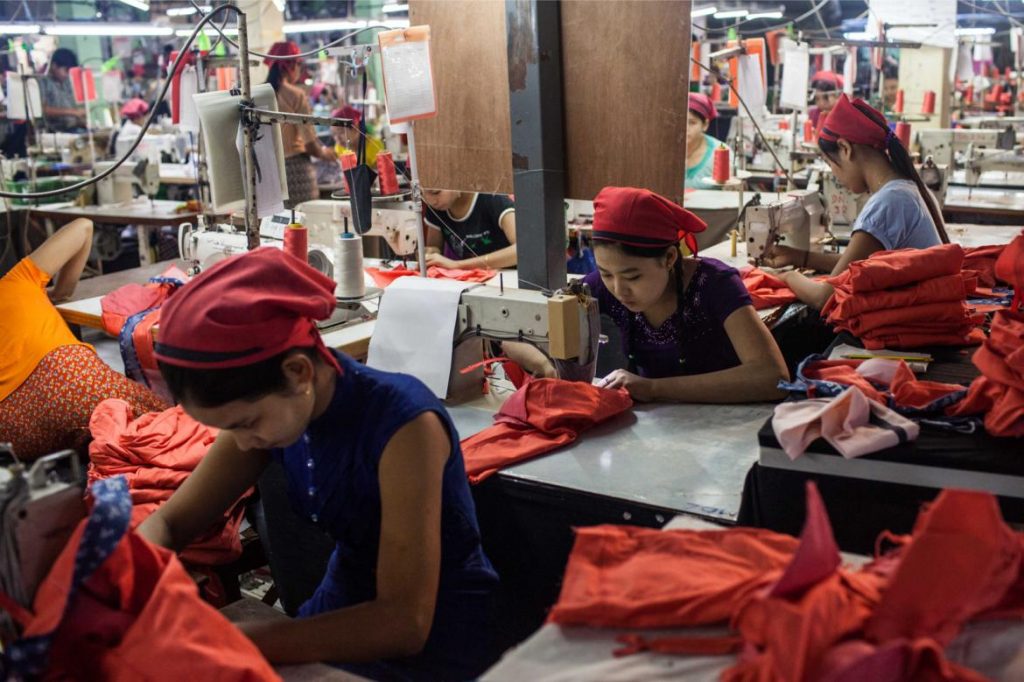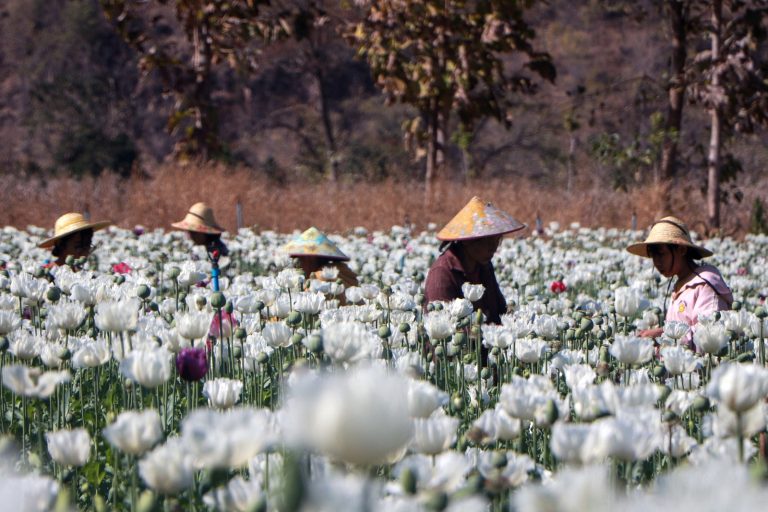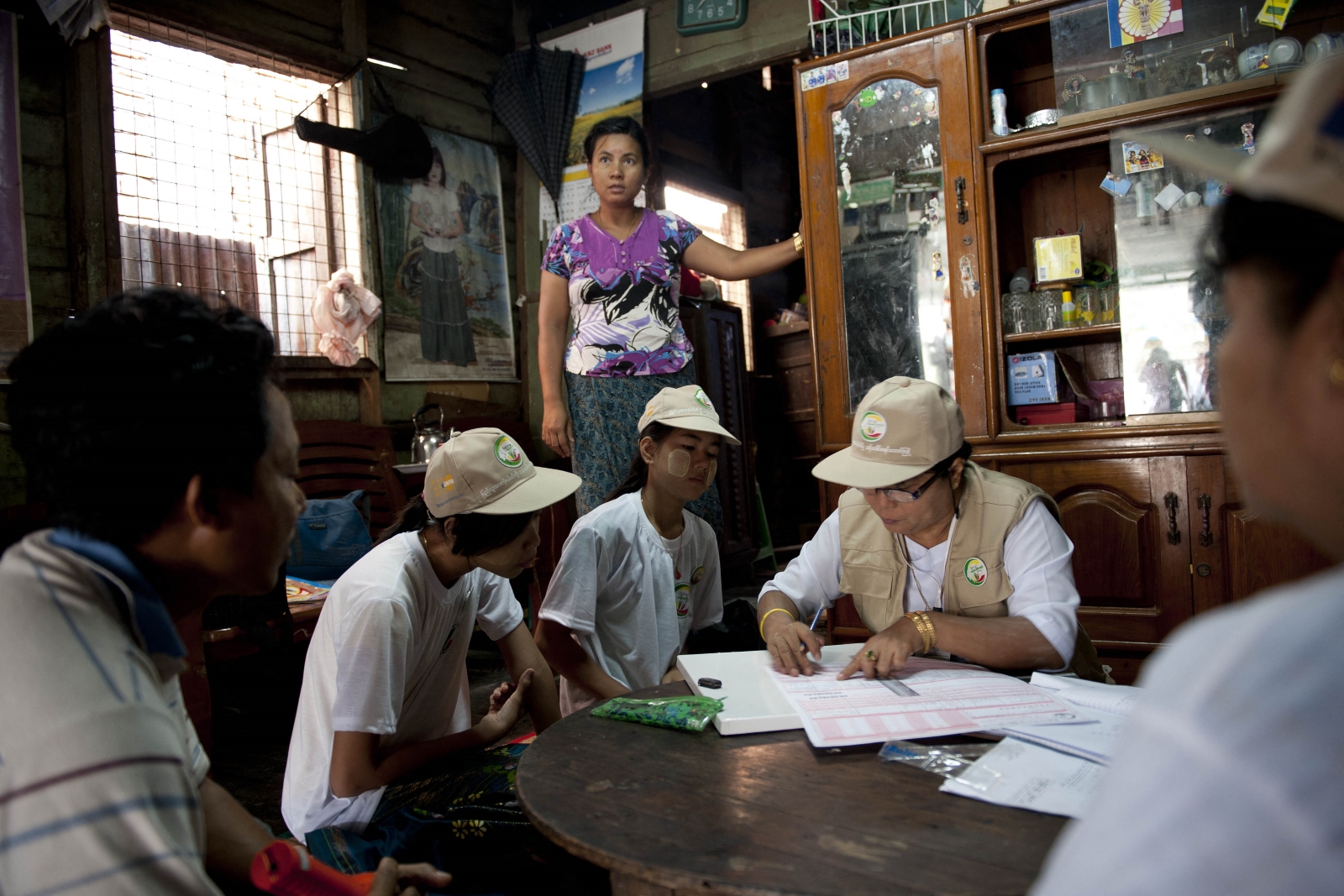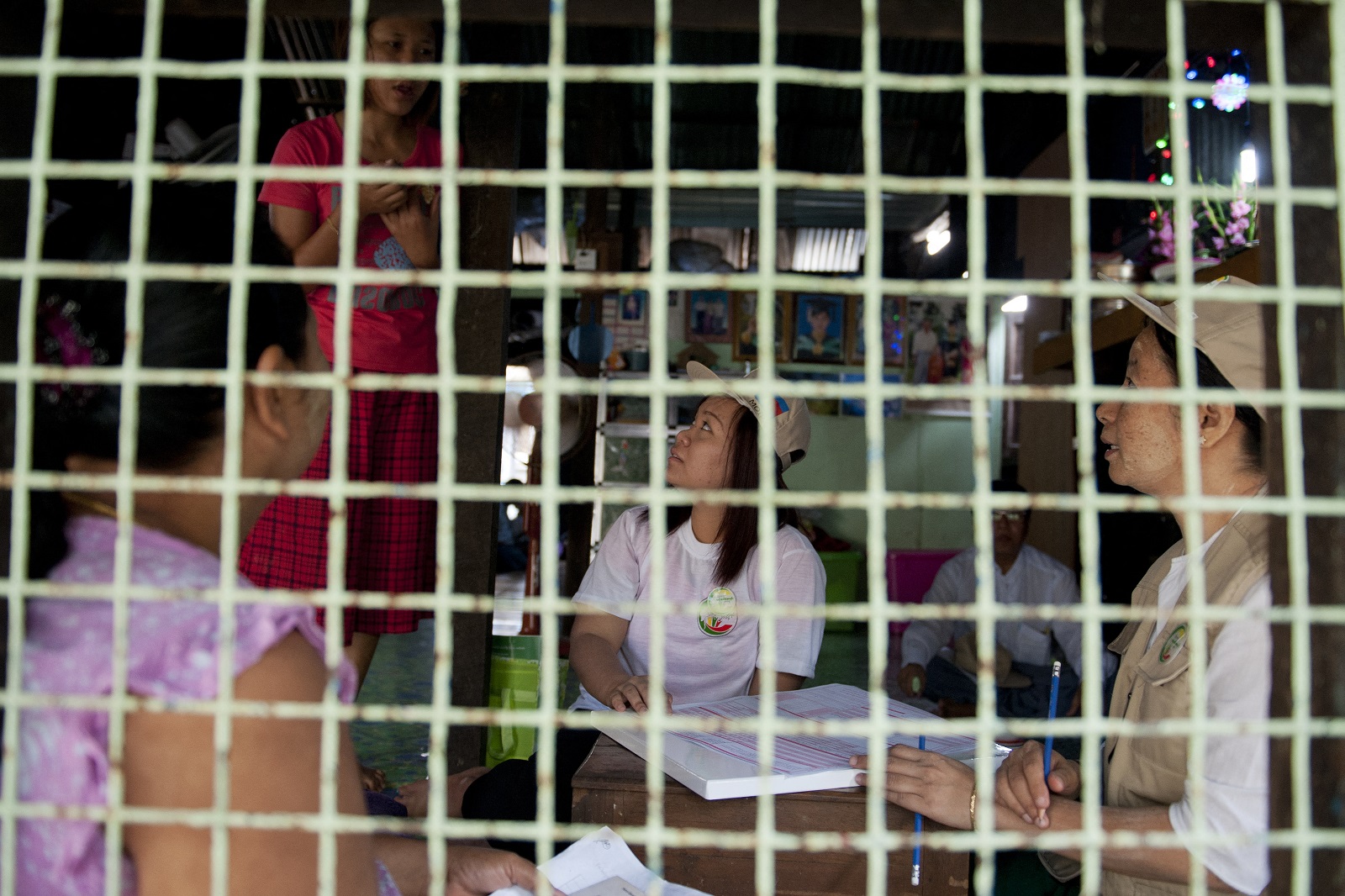The lack of qualified ministerial candidates and external economic factors may derail even the best-laid plans of the NLD.
Campaigning for the November 8 election is about to begin. The main parties are putting the nishing touches to their policy platforms.
A key election issue will be economic management.
The Union Solidarity and Development Party has taken a simplistic approach and is promising more jobs if re-elected; the Farmers’ Development Party is positioning itself as the only party with the interests of rural voters at heart and is pushing land rights and micro-credit.
Dr Sean Turnell, an expert on Myanmar’s economy at Macquarie University in Sydney, who has been advising the National League for Democracy, says that Daw Aung San Suu Kyi’s party is more than a one-issue party when it comes to the economy. “The big difference is that the NLD’s approach to economic policy deals with the fundamentals, rather than simple, superficial proposals and propaganda,” he said.
The NLD’s economists have been working on the policy for more than a year and have sought the advice of international experts. The economic team says the policy is still under discussion but should be released in the coming weeks.
Support more independent journalism like this. Sign up to be a Frontier member.
The team’s leader, U Soe Win, an NLD central executive committee member, says there is still some tinkering to be done before the platform is made public, though the party has agreed the broad principles.
The policy paper proposes five pillars: boosting agriculture, prudent fiscal and monetary policy, reforming government administration, creating a functioning infrastructure, and establishing a knowledge economy which builds on the initiative and creativity of the Myanmar people.
“Improving agricultural productivity is a priority,” says U Myo Myint, another senior member of the NLD’s economic team and a Finance Ministry oficial when U Ne Win was in power. “This would involve granting the country’s farmers their land rights, creating greater and easier access to credit, and ensuring seeds, tractors and milling equipment are available, as well as enhancing market access,” he said.
Food security must be guaranteed quickly, says the team’s draft policy paper. The agriculture sector accounts for 40 percent of gross domestic product while employing 70 percent of the labour force. This has to be rectified as soon as possible, says the NLD economic team.
The party’s economists are aware that improving the agricultural sector will not transform the economy for the benefit of the population as a whole and that the industrial and services sectors must become the main engines of growth in the longer term.
The economic plan is to harness the initiative and creativity of the country’s workforce and, especially, its younger generation, say the NLD’s economists. “Great stress will be put in developing small and medium-sized enterprises,” says another team member, U Min Khin.
Another key proposal is to develop fiscal and monetary stability. The NLD promises a concerted effort to boost revenue from taxation without putting an undue burden on the less well-off members of society. “We will practice progressive taxation,” says U Min Khin. The NLD also plans to make the Central Bank of Myanmar truly independent of government.
A central part of the party’s plans is a thorough overhaul of the government, which will focus on creating institutions to support the rule of law, property rights, transparency and accountability. The draft document says the bureaucracy is not only inefficient and control oriented, but rife with corruption and ad-hoc decision-making.
The plan is to streamline government and make it lean and effcient. “With some 31 ministries, all with deputy ministers, government administration is inefficient, lacks collective control and coordination, and is a burden on the country and its economy,” says U Myo Myint.
“While this looks wonderful on paper, it is only paper,” said a Yangon-based Myanmar business consultant who spoke on condition of anonymity.
Some are concerned that although the NLD might have the right economic vision, it has no one to oversee its implementation.
“The NLD’s biggest problem is that they do not have any potential ministers in their ranks,” said U Thet Aung Min Latt, the chief executive officer of Diamond Consultant Group.
Some businessmen fear that if the NLD gets the opportunity to apply its economic policy, it will not be more rigorous than the ruling USDP.
Political considerations may loom too large. Asked what would be an NLD-led government’s first priority after the election, the party’s economic czars said emphatically it would be changing the constitution. Of course, the international economic downturn and the Chinese currency crisis may also derail the NLD’s best-laid economic plans.







